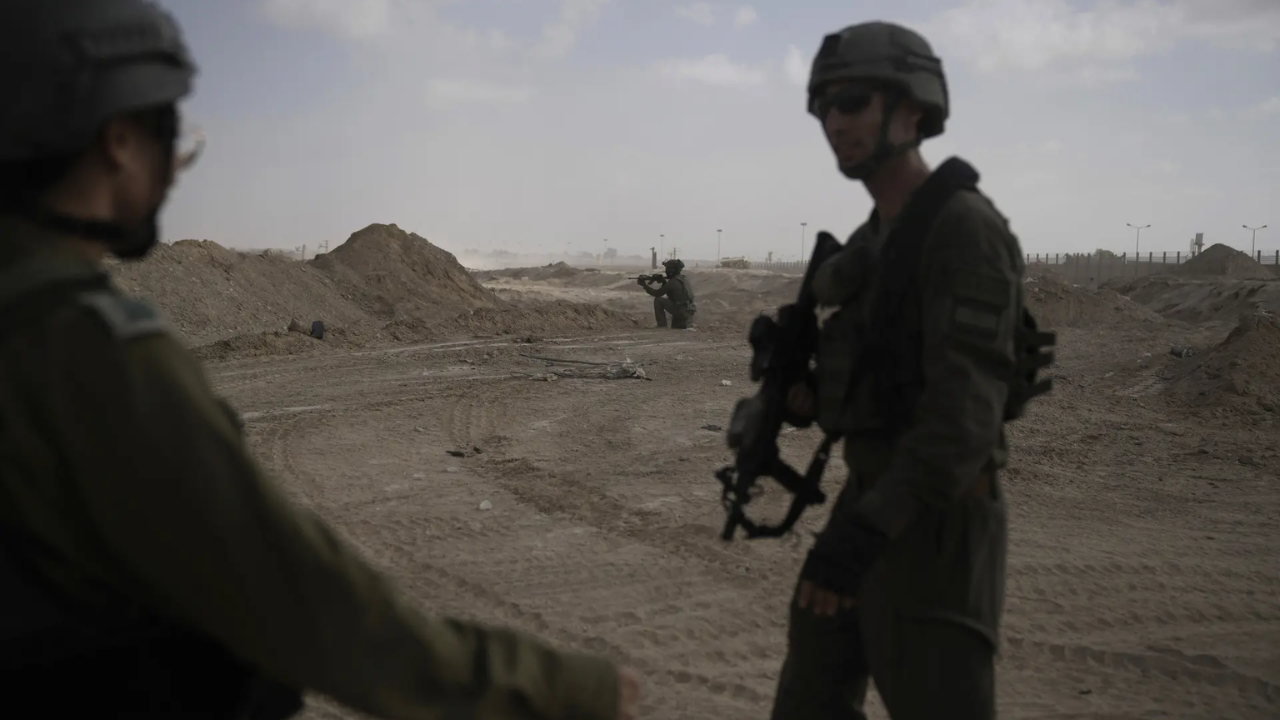Israel Kills Two Palestinian Militants in Jenin Following Deadly Bus Attack
Israel's military operation in the West Bank continues to escalate, following the killing of two Palestinian militants overnight near Jenin. This action comes on the heels of a deadly bus attack that shook Israel earlier this month. The recent escalation sparks fears of further unrest in the volatile region.
The Jenin Raid: A Night of Deadly Clashes
The Israeli army reported that forces engaged in an exchange of fire with the two militants, identified as Mohammed Nazzal and Qutaiba Shalabi, who were found barricaded in a house in the village of Burqin. Following the shootout, both militants were declared dead. The army stated the two were affiliated with Islamic Jihad and were responsible for the deadly bus attack in early January. A soldier was also injured in the intense overnight clash.
Aftermath: Palestinians React to the Killings
The Palestinian health ministry confirmed the deaths of Nazzal and Shalabi, but stated that their bodies are currently being withheld by Israeli authorities. The families and community are grieving the loss of these young men, and tensions in the region are undoubtedly heightened. This tragic incident continues to fuel the complex cycle of violence.
The January 6th Attack: A Catalyst for the Recent Operations
The January 6th attack near Al-Funduq village saw the tragic killing of three Israelis and the wounding of six others. Israel’s Defense Minister, Israel Katz, promptly directed the military to respond forcefully, issuing a strong warning about the consequences of attacks against Israelis.
The Ongoing Israeli-Palestinian Conflict: A Cycle of Violence
The current surge in violence across the West Bank follows the outbreak of conflict in Gaza in October 2023. This grim reality underscores the depth of the conflict. The already-tense relationship between Israelis and Palestinians has become even more dangerous. A rising number of fatalities, reported by both Palestinian and Israeli officials, highlights the scale of this complex conflict. Palestinian accounts report over 850 Palestinian deaths, while Israeli reports cite at least 29 Israelis killed in Palestinian attacks or during Israeli military operations.
Understanding the Israeli-Palestinian Conflict: Key Points
The Israeli-Palestinian conflict is a long-standing geopolitical issue with deep-rooted historical complexities. Multiple factors contribute to its persistence: different historical narratives, competing territorial claims, political disputes, religious and ideological differences, as well as the complex involvement of regional and international actors.
Navigating the Web of Conflict: Historical and Political Nuances
The historical narrative surrounding land claims plays a vital role in perpetuating the conflict. Both Israelis and Palestinians see certain areas as integral parts of their respective identities and national narratives. Understanding the historical nuances is paramount in attempting to find common ground.
The Geopolitical Landscape: Beyond the Immediate Actors
Regional dynamics also significantly influence the conflict, with many nations playing active, or subtle, roles in shaping outcomes. A deep-dive into these political realities allows for an understanding of how seemingly peripheral countries have impacts on this fraught scenario. External players frequently have agendas and relationships that impact the resolution of the core issues of the conflict. Further adding to this layer of complexity, regional and international interests affect negotiations and potential paths towards reconciliation.
A Path Forward: Seeking Peace in the Middle East
For peace to become a reality, both sides must prioritize a diplomatic approach through meaningful dialogues focused on compromise and reconciliation. The challenge requires a willingness to empathize with the needs and concerns of the opposing party. International players must further act as facilitators for an inclusive dialogue.
Potential Avenues for Peace and Reconciliation
Several pathways exist that can potentially lead to peace between these opposing forces. International collaboration, regional partnerships, and inclusive strategies can pave the way towards co-existence. The core focus must center around human rights, justice, and a shared future.
Seeking a Future of Co-existence and Shared Prosperity
Achieving sustainable peace mandates comprehensive solutions focusing on mutual security. Each side needs reassurance that its fundamental rights and concerns are being seriously considered. Achieving co-existence hinges on mutual empathy and collaboration, fostering shared respect.
Take Away Points
- The recent escalation of violence underscores the complexity and volatility of the Israeli-Palestinian conflict.
- Understanding the historical, political, and regional dynamics is essential for comprehending the roots of the conflict.
- A peaceful resolution requires a diplomatic approach based on mutual respect, dialogue, and compromise.
- International involvement and inclusive initiatives are critical in promoting peace and reconciliation.




